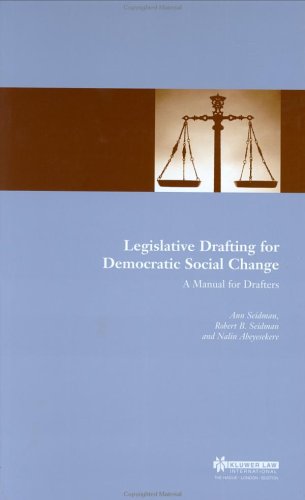
Print On Demand Edition
Good governance, that is, effective government based on non-arbitrary decision-making, is central to a country's successful development or transition to a market-oriented economy. This Manual explores the critical relationship between law making and development. It aims to equip legislative drafters with the conceptual tools and specific techniques they need to draft laws likely to bring about the institutional transformation necessary for good governance.
Designed as a practical aid for practitioners in the developing and transitional worlds, this work demonstrates how, within constitutional and other limits, a drafter should structure a bill, provides instruction in drafting amendments and subordinate legislation, and describes the skills required to write the clear, unambiguous and readily-interpreted provisions required to achieve a bill's policy objectives. It provides a model for a research report that, based on facts and logic, will justify the bill's detailed provisions and demonstrate that the responsible agency will implement them effectively.
The final section focuses on drafting laws to facilitate government decision-making in accordance with the rule of law. In particular, it suggests devices for drafting defensively against corruption, thus providing the legislative environment essential for successful transition and development.